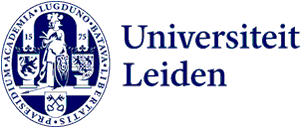
Putting the strategic plan into practice? 'We do that together'
A strategic plan that resonates with employees. That's how Maaike Barkema describes her work as strategic secretary. Her task? Ensuring that the strategic plan is actually put into practice. 'My work is like a puzzle: I bring the right people together and make sure all the pieces fall into place.'
With the combination of teaching, research and business management, Maaike is completely in her element. For her, a STEM environment is the cream of the crop. 'Here, things are unusual; you don't have labs everywhere, facilities like ours sometimes require customisation. And the target group is nice to work with; the university and certainly our faculty employ intelligent colleagues and hard workers. I love that I can bring them together and foster joint thinking capacity, so that we implement innovations, improve ongoing processes and thus strengthen our faculty.'

You don't want to notice anything of management
How she does her job? Through ten programmes developed on the basis of the strategic plan. 'We are implementing those programmes in phases. We are currently working on three programmes: Governance Model, Integral Operations and Recognition & Rewards.' Maaike is the quartermaster of Integral Management. In this programme, she looks at how business operations can run smoothly within the faculty. The focus is on implementing innovations and improving processes. 'You don't really want to notice anything about operational management. For example, if you have to figure out how to submit a declaration every time, it creates work pressure. That means something is not going well and you therefore have to change something.'
Cutting workload and increasing job satisfaction
The process of onboarding is a good example. Some colleagues receive a coffee pass on their first working day, others do not. Flowers are arranged for some, but not for others. It also happens that on the first working day a laptop is not yet ready. Is that a bad thing? 'Not always,' thinks Maaike, 'but our aim is to make the process of onboarding easier. Actually, you want to be able to arrange something with one click. Some institutes have a checklist, others don't. The risk is that we keep reinventing the wheel. That creates unnecessary workload. So we can start working more efficiently. Ensure that such a checklist is available to everyone automatically. That will reduce the workload and increase job satisfaction. We all want that, don't we?
'If we organise our processes smarter, workload goes down and job satisfaction goes up'
More cooperation
Because cumbersome or unclear processes create friction, Maaike observes. More collaboration, she says, is the key to success. 'Now it is often individuals who are involved in a piece of a process. It helps if those individuals get to know each other. How are you working on it and how can that help me? That applies especially to the support staff.'
Making changes takes time
Besides her dedication to her work, Maaike particularly appreciates the human aspect of her job. 'The most enjoyable part of my job is bringing people together and fostering cooperation,' she shares. 'By building teams where everyone is involved, we create a culture of shared success.'
Some aspects of her job are difficult, especially when it comes to changes that happen slowly. 'It is sometimes difficult when things don't go as fast as you would like,' she admits. 'In an organisation with complex processes and different stakeholders, implementing new ways of working can take a long time. Therefore, in the coming period, we are thinking out how to do this in a smart way: on the one hand, as quickly as possible and, on the other, with sufficient involvement of the organisation.'
